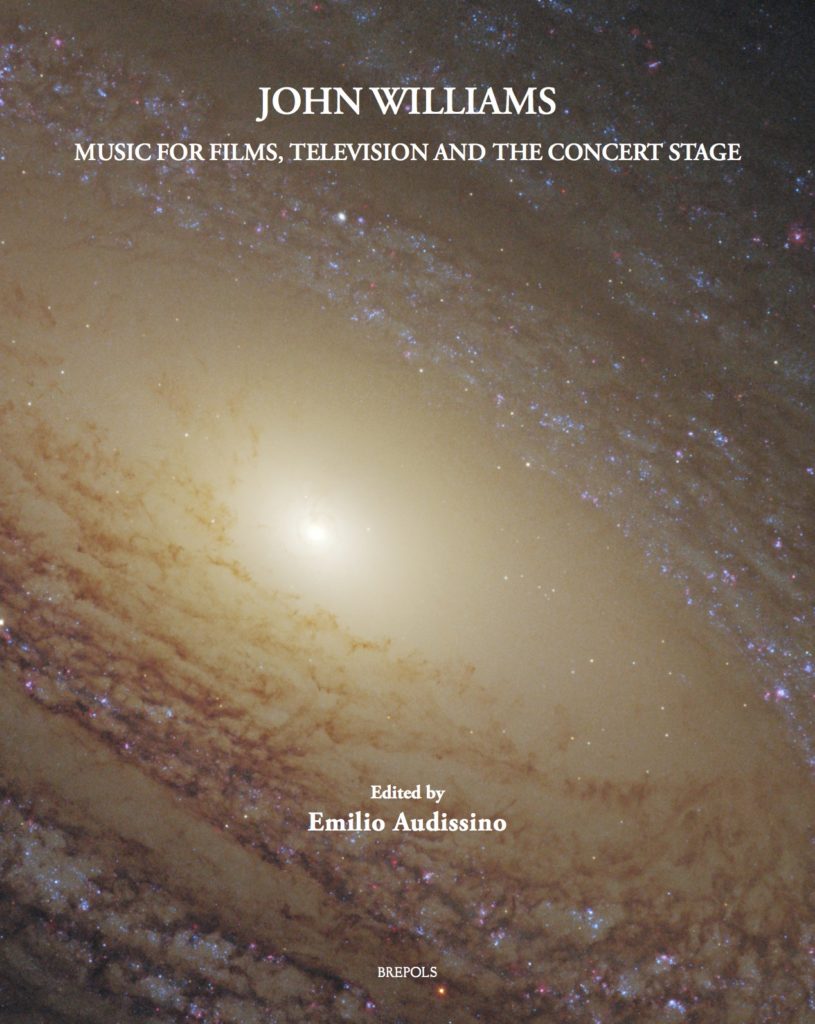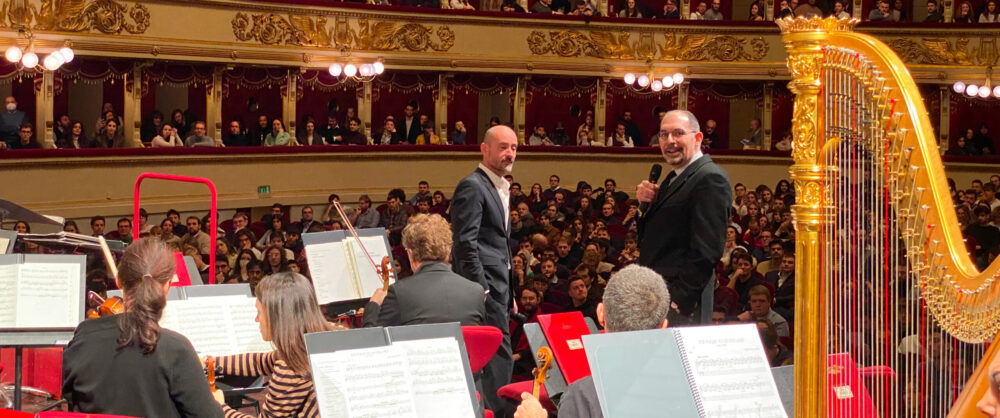Music for Films, Television, and the Concert Stage
Edited by Emilio Audissino, 2018

With five Oscars on his mantelpiece, and having secured his 50th Oscar nomination this year – placing him right after Walt Disney as the most nominated artist in the history of the Academy Awards – John Williams is the most successful film composer in Hollywood history, and possibly the whole film history. John Williams has also been very active outside of his film career, producing a notable corpus of concert works and celebration pieces (for example, writing hymns for the Olympic Games and for such important landmarks of America’s history as the rededication of the Statue of Liberty in 1986). More importantly, at the time of writing this, he is still producing film and concert scores and shows no signs of even thinking about retirement.
Once mostly considered a commercial composer and a mere rewriter of previous composers’ styles, only recently – and quite belatedly – Williams’ music has begun to be taken seriously, and scholars from the music and the film departments have begun to produce research in the form of books, journal articles, conference papers, and Ph.D. theses. Once dismissed as a ‘plagiarist’, Williams is now seen and lauded as an acute ‘paraphraser’, to cite a recent paper by James Orosz. Even if some foundations have indeed been laid, much work is still to be done. This is the moment to consolidate what can be called the ‘John Williams Studies’.
The present volume seeks to build upon, complement and review what has been written so far on Williams. It is designed as a larger exploration of the many sides of Williams’s output, aimed at showing the range of his production (not merely focussing on film music) and at analysing the depth of his dramaturgic and compositional skills with selected case studies. To accomplish this exploration – which has not the pretence of exhaustiveness but certainly that of being an accurate survey possessing both latitude and depth – a large team of international scholars has been assembled from all around the world.
The contributors come from film, media and music departments – to provide a variety of disciplinary perspectives on Williams’s work. There are chapters that zoom in on single streaks of his production – the musicals, the music for television, jazz, the concert music… – and other that focus on case studies that not only include the most celebrated films – Star Wars, E.T. The Extraterrestrial, Harry Potter… – but also less examined film scores like Munich, A.I. Artifical Intelligence, Angela’s Ashes, War of the Worlds. Some of these chapters stems from a musico-formalist approach (the detailed analysis of the Violin Concerto, that of the leitmotiv network in the Star Wars films…), others adopts wider and less text-centred views, based on the dramaturgic coupling of images and music (the chapter on A.I.),on the narrative functions of the music (the villain themes in Williams’s scores), on the psychology of musical perception (the Munich chapter), or on media/seriality studies (film music as a brand). A chapter also explores the presence of Williams’s film music in the concert programmes.
To complement this selection of eighteen essays from academics and scholars/composers, an appendix closes the book with two original interviews. Here the focus is on the performer’s viewpoint: how is it to play John Williams’s music? The first interview is with the music director and principal conductor of the Boston Pops Orchestra Keith Lockhart, who succeeded to John Williams as the leader of this famed musical institution. The second interview is with the concert pianist Simone Pedroni – a recipient of the prestigious Van Cliburn Gold Medal – who has always played Williams’s music in his concert programmes alongside that of the canonical composers, and has recently released a CD of piano transcriptions of Williams’s film music.
A volume on John Williams is the perfect opener for Brepols’s new series ‘Contemporary Composers’ not only because of Williams’s vast impact on contemporary music but also because this choice is a strong statement about the need to supersede the old barriers that used to separate concert music (absolute musik) from film music (the worst type of gebrauchsmusik, according to Adorno and others). All good music is good music, regardless of its genre and finality. And John Williams should not be considered a film composer, but a composer, one of the most influential of our time.
Table of Contents
Emilio Audissino, Introduction: John Williams, Composer
John Williams and the Musical Landscapes: Film, Television, Jazz, and Concert Halls
– Mervyn Cooke, A New Symphonism for a New Hollywood: The Musical Language of John Williams’s Film Scores
– Paula Musegades, John Williams: Television Composer
– Ryan Patrick Jones,“Catch as Catch Can”: Jazz, John Williams, & Popular Music Allusion
– Emile Wennekes, No Sharks, No Stars, Just Idiomatic Scoring and Sounding Engagement: John Williams as a ‘Classical’ Composer
– Sebastian Stoppe, John Williams’s Film Music in the Concert Halls
The Williams Touch: Style and Musical Dramaturgy
– Mark Richards, The Use of Variation in John Williams’s Film Music Themes
– Frank Lehman, The Themes of Star Wars: Catalogue and Commentary
Ian Sapiro, Star Scores: Orchestration and the Sound of John Williams’s Film Music
– Nicholas Kmet, Orchestration Transformation: Examining Differences in the Instrumental and Thematic Colour Palettes of the Star Wars Trilogies
– Joakim Tillman, The Villain’s March Topic in John Williams’s Film Music
– Jamie Lynn Webster, Musical Dramaturgy and Stylistic Changes in John Williams’s Harry Potter Trilogy
Case Studies
– Laura Anderson, Sounding an Irish Childhood: John Williams’s Score for Angela’s Ashes
– Chloé Huvet, John Williams and Sound Design: Shaping the Audiovisual World of E. T.: The Extra-Terrestrial
– David Ireland, «Today I’m Hearing with New Ears»: John Williams’s Use of Audiovisual Incongruence to Convey Character Perspective in Munich and Spielberg’s Historical Films
– Irena Paulus, John Williams and the Musical Avant-garde: The Score for War of the Worlds
– Tom Schneller, Out of Darkness: John Williams’s Violin Concerto
– Stefan Swanson, Happily Never After: Williams’s Musical Exploration of the ‘Controversial’ Ending to A. I.: Artificial Intelligence
The Performer’s Viewpoint
– Emilio Audissino & Frank Lehman, John Williams Seen from the Podium: An Interview with Maestro Keith Lockhart
– Maurizio Caschetto, John Williams Seen from the Piano: An Interview with Maestro Simone Pedroni
Abstracts and Biographies
Index of Names
